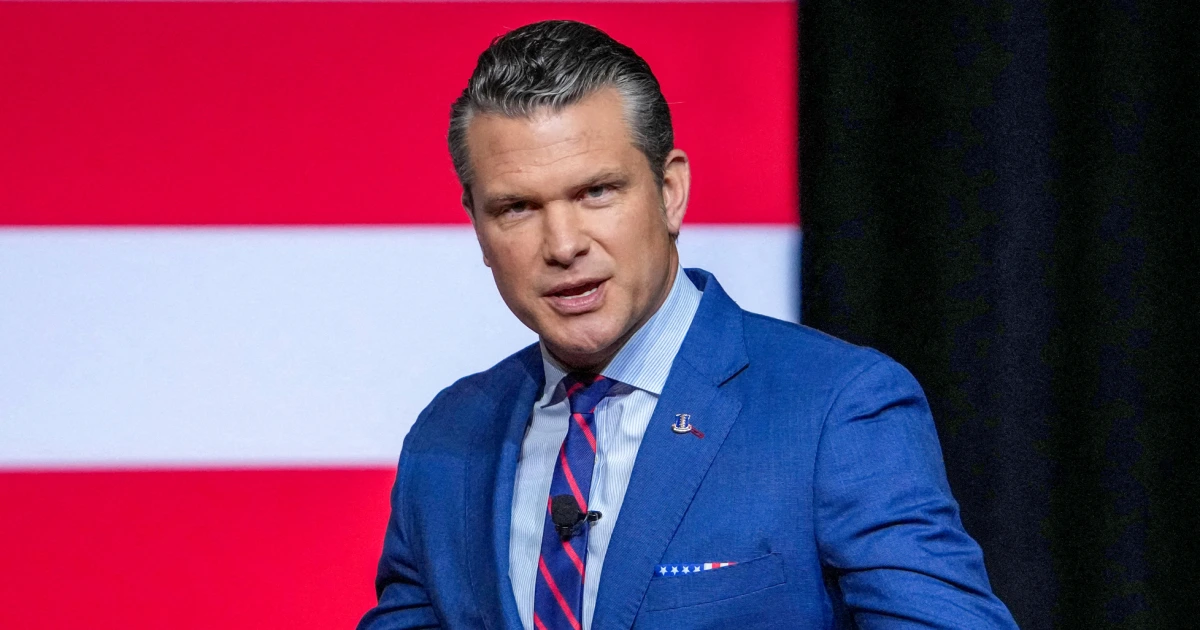Copyright NBC News

WASHINGTON — Senior Republican lawmakers predicted Wednesday that Defense Secretary Pete Hegseth's new policy restricting communication between Pentagon personnel and Congress will crash and burn. "It is ill-advised, and it's not going to work," House Appropriations Committee Chairman Tom Cole, whose panel provides funding for the Pentagon and the rest of the federal government, said in a telephone interview with NBC News. Cole, a Republican whose Oklahoma district includes Tinker Air Force Base and Fort Sill, said he and his staff receive important information from personnel up and down the ranks on a regular basis on a wide range of topics, including the effects of a political stalemate in Washington that has paused certain government operations. “Do you think I’m not going to be able to talk to those command generals on a regular basis about things like the shutdown?” Cole asked rhetorically. "I don't understand what they're worried about," he said of the department. Hegseth announced the new policy in an Oct. 15 memo that was obtained by NBC News on Tuesday, after its existence was revealed by Breaking Defense. It is part of the secretary's broader effort to control the flow of information out of an agency that employs more than 3 million people. Last week, the Pentagon revoked credentials for major news organizations after their reporters declined to sign a pledge to publish only material explicitly authorized for release by the Defense Department. In his memo, Hegseth instructed all Defense Department staff, except those working for the agency's inspector general, to seek permission from the Pentagon's Office of Legislative Affairs before communicating with lawmakers or their aides. He wrote that "unauthorized engagements with Congress" may "undermine Department-wide priorities critical to achieving our legislative objectives." But lawmakers suggested that the policy, which applies even to the top leaders of each of the branches of the military — known as the joint chiefs of staff — may be more destructive to Hegseth's agenda than casual conversations. "No, no, no, no, no, no, no," Sen. John Cornyn, R-Texas, said when asked if he could foresee the joint chiefs actually having to vet each of their contacts with lawmakers through the Defense Department's liaisons to Capitol Hill. Without making an explicit threat, he pointedly noted that, in addition to congressional control over Hegseth's budget, the Senate decides whether to confirm or reject the president's picks for high-ranking Defense Department jobs. "We have Senate-confirmed nominees that I dare say [the Senate] would be reluctant to confirm if our access to accurate information from the Department of Defense was inhibited in any way," Cornyn said. "I think Secretary Hegseth knows that, and so I’m not, not going to be a 'Chicken Little' and say the sky is falling. Somehow I just don't think that's true." A Pentagon spokesperson did not reply to a request for comment on the criticism from lawmakers. Cornyn and Cole both contended in separate interviews that the military and Congress benefit from exchanges of information that occur outside of public hearings and official meetings. Cole, who sometimes conducts business over cigars, said that informal contacts with lawmakers are an invaluable means for the military to build and maintain credibility on Capitol Hill. "There needs to be an easy relationship," he said. Lawmakers who spoke to NBC News this week questioned both the wisdom and the practicality of Hegseth trying to stop nonclassified information from flowing through the Pentagon to Congress and the public. "I’ve seen the things, the requirements they’re trying to place on the press, and, you know, we’re a democratic society," Sen. Thom Tillis, R-N.C., said, adding that he views the recent push as a sign that the secretary doesn't have faith in his own charges. "You’ve got to trust your chain of command. This is too large of an organization to have that kind of a tight clamp on it, particularly when we have members [of Congress] that want specific answers, not going through protocol," he said. "This sort of closing the discussion to the press, limiting how many people connect independently in their capacity, very senior capacities in the DOD, just doesn’t make sense to me. It underlines a lack of trust in the organization that I don’t think is good for senior management to project." Tillis stopped short of saying that he regrets his vote to confirm Hegseth, which was cast earlier this year after careful consideration. "I stand by that decision," Tillis said. "But as I’ve said before, I think I deferred to the Senate Armed Services Committee for an assessment of his managerial technical skills and I think he’s fallen short on a few of those, maybe, expectations coming out of the Armed Services Committee."



